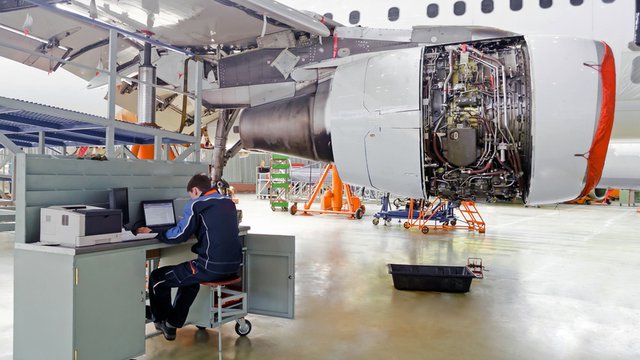
What is aviation management?
Edited on April 15, 2024

Air transport has become a key factor for the world economy due to its contribution to trade and tourism in a globalised world. It is estimated that this sector generates approximately 3.5% of global GDP and employs 62.7 million people, as revealed by the European Transport and Logistics Council.
Despite the slowdown caused by the pandemic, the number of passengers is expected to double worldwide by 2035 and the volume of good and merchandise is also expected to grow, which will mean new business opportunities and an increase in demand for profiles qualified in aerospace and aircraft engineering and more specifically, in aeronautical management.
Aviation management meaning
Aviation management encompasses the strategic coordination and oversight of all aspects related to the operation and administration of aviation activities. It involves the efficient utilization of resources, including personnel, aircraft, and infrastructure, to ensure safe, reliable, and cost-effective air transportation services.
This field addresses a wide range of responsibilities, such as fleet management, regulatory compliance, scheduling, budgeting, safety protocols, and customer service. Effective aviation management requires a comprehensive understanding of industry dynamics, technological advancements, regulatory frameworks, and market trends.
Professionals in this field play a crucial role in optimizing operations, enhancing safety standards, and driving innovation within the aviation sector to meet the evolving needs of passengers and stakeholders alike.
What does an airport manager do?
Aeronautical management focuses on the management of companies dedicated to air transport, whether they are airports, airlines, aircraft manufacturers, air traffic management companies and, in general, all those organizations that operate in that sector and act as suppliers or customers.
In addition, an airport manager is also in charge of all those activities and operations aimed at directing and controlling people and organisations related to the use of aircraft, with the aim of guaranteeing their safety, operability and efficiency.
How to train in aeronautical management?
To work in the aeronautical management sector, you can enter via different training routes. For example, you can take a course focused on air transport logistics that addresses both the socioeconomic, legal and logistical aspects of the aeronautical sector, as well as the basic details of air navigation.
In fact, our degree in aerospace and aircraft engineering allows you to gain an insight into the profession as an aerospace engineer from day one. You will have the opportunity to carry out projects in the most recognisable companies in the aeronautical and aerospace sector such as Airbus, Iberia, European Space Astronomy Center, ITP, European Space Agency or Deimos, facing practical and real cases.
Aviation management: common professional opportunities
Aeronautical management does not focus so much on technical activities as on business organisation. This means that professionals specialised in this sector have different job opportunities in various types of companies, from airlines to airports, companies that provide auxiliary handling, maintenance or simulation services and even in the area of specialized consulting, audit and aeronautical training.
These professionals have a solid background in aeronautics, computing, mathematics and financing, as well as in the socioeconomic and operational aspects of transport, so they can be in charge of:
- Management or economic-financial area of air transport.
- Planning, organisation and administration of airlines.
- Strategic and commercial planning of companies operating in the air and airport sectors.
- Market research in air and other transport to detect the main trends in the sector.
- Design of air transport demand models, both passenger and cargo, to make forecasts and manage resources more efficiently.
- Strategic, tactical, logistical and operational planning of an airport, whether in the commercial area, operations management or passenger service, maintenance, flight security or baggage and parcel services.
Looking at the Spanish market, it is important to know that, according to Glassdoor, the average salary of an Aeronautical Technician is 36,689 euros. The salary of an aeronautical engineer is higher, around 40,100 euros per year, although a senior aeronautical engineer can earn an average of 76,600 euros per year, depending on their responsibilities, position, professional profile and the company where they work.
Article published on May 31, 2022